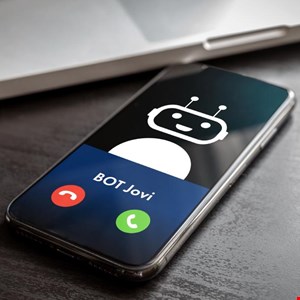- How to set up your own article archiving service - and why I did (RIP, Pocket)
- I highly recommend this Bose portable speaker to most people, especially outdoorsy music enthusiasts
- New Infographic: PCI DSS Vulnerability Management Processes
- Alibaba will run on SAP as SAP runs on Alibaba Cloud
- Czech Republic Accuses China of Government Hack
AI-Powered Robocalls Banned Ahead of US Election

The US Federal Communications Commission (FCC) has introduced a ban on robocalls that contain voices generated by AI to protect US voters from spamming ahead of the November presidential election.
Callers must obtain prior express consent from the called party before making a call that utilizes artificial or pre-recorded voice simulated or generated through AI technology, the FCC stated in a February 8 declaration.
The ban will be added to the measures included in the Telephone Consumer Protection Act (TCPA), which was adopted in 1991 to restrict telemarketing and the use of automated telephone equipment.
The decision takes immediate effect. The FCC will now be able to sanction companies that use AI-generated voices during a call without prior consent, with fines of up to $23,000 per call.
Beyond FCC penalties, the ban empowers individuals to sue violators directly, potentially recovering up to $1500 in damages for each unwanted call.
New Hampshire Probes AI Robocall Mimicking Biden
Jessica Rosenworcel, the FCC’s chairwoman, said in the declaration that bad actors have been using AI-generated voices in robocalls to misinform voters, impersonate celebrities and extort family members.
“Already we see this happening with Tom Hanks hawking dental plans online, a vile video featuring Taylor Swift, and calls from candidates for political office that are designed to confuse us about where and when to vote.
According to voice security company Hiya’s latest Global Call Threat Report, the last quarter of 2023 saw 7.3 billion suspected spam calls globally, representing 81.1 million unwanted calls daily.
Speaking to Infosecurity, Kush Parikh, president of Hiya, praised the FCC decision.
He commented: “Phone fraud and spam is a growing, global problem from which no phone user is immune. All members of the telecom community, from carriers to vendors, must work together to increase consumer confidence in the phone as being safe and trustworthy. A failure to accomplish this goal would result in a breakdown of the world’s most longstanding communication tool.”
The announcement comes a month after an AI-generated robocall campaign mimicked President Joe Biden’s voice to discourage people from voting in the New Hampshire primary.
The New Hampshire authorities are still investigating the case.
Read more: Meta to Introduce Labeling for AI-Generated Images Ahead of US Election

